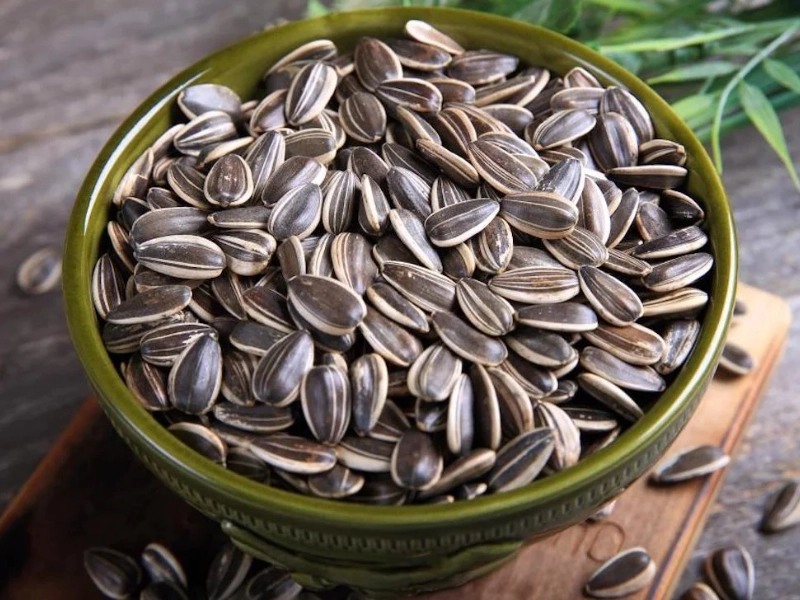Advertisement

Advertisement
1. Vitamin E: Their Function Particularly in guarding cells from oxidative stress, vitamin E is a fat-soluble antioxidant that is absolutely vital for general health. Among many body processes, immunological response and skin health depend on this vitamin. Still, its importance reaches also to respiratory health. Vitamin E can help to maintain ideal respiratory function and general lung health by protecting lung tissue from damage caused by free radicals.
2. Lung Health: Antioxidant Characteristics Environmental chemicals, allergies, and pollutants all around us continually affect the lungs and cause oxidative stress. Strong antioxidant qualities of vitamin E help neutralise these damaging free radicals, therefore lowering inflammation and avoiding destruction of cells in lung tissues. Maintaining lung function depends on this protective action, particularly in those with pre-existing respiratory diseases as asthma or chronic obstructive pulmonary disease (COPD).

3. Inflammation and Vitamin E Lung chronic inflammation can aggravate already existing problems and cause lower respiratory performance. Studies point to vitamin E's ability to change immune responses, therefore reducing inflammation. Vitamin E can help to improve general respiratory health and encourage better lung tissue by lowering the body's inflammatory marker levels. Those exposed to smoking, smog, or respiratory irritants especially benefit from this anti-inflammatory action.
4. sources of vitamin E Since vitamin E is present in many foods, including some really simple items, including it into your diet is not difficult. Excellent sources are vegetable oils (such as wheat germ oil and sunflower oil), seeds (like sunflower seeds), nuts (such almonds and hazelnuts), and green leafy vegetables. A balanced diet high in these items can help you to guarantee enough vitamin E consumption to promote lung function and general well-being.

5. The Relationship Among Respiratory Diseases and Vitamin E Studies have indicated that those with reduced vitamin E levels could be more likely to suffer respiratory problems. For those with asthma, for instance, studies show that vitamin E supplements might help lung function and lower the frequency of respiratory infections. Maintaining enough vitamin E levels will help you perhaps reduce your risk of respiratory problems and improve your lung capacity.
6. Smoking and vitamin E Lung damage and respiratory disorders are mostly caused by smoking. Fascinatingly, vitamin E could be protective for smokers. Studies point to vitamin E's ability to lower oxidative stress and inflammation in the lungs, therefore helping to offset some of the negative consequences of smoking. Although stopping smoking is the best approach to preserve lung health, enough vitamin E intake might help smokers as well.
7. Daily Recommended Intake One must follow the advised daily dose if one wants to benefit from vitamin E for lung condition. Adequate consumption for humans is around 15 milligrammes (22.4 International Units) daily. Individual needs, however, could change depending on age, gender, and health state. Unless instructed by a medical practitioner, a balanced diet is usually the better way to get vitamin E than pills.

8. Possible hazards of too high intake Although vitamin E is vital for health, too much of it—especially from supplements—may cause side effects. Strong dosages of vitamin E might disrupt blood coagulation and raise bleeding risk. Therefore, especially if you have underlying medical concerns or are using drugs, it is imperative to follow advised amounts and see a healthcare provider before beginning any supplementation.
9. Synopsis of the advantages of vitamin E for lungs A necessary vitamin, vitamin E improves lung health by means of antioxidant protection, inflammation reduction, and perhaps risk of respiratory disorders lowering effect. Including foods high in vitamin E into your diet will improve your general health and respiratory performance. Those with established lung diseases or those exposed to environmental toxins especially should give this nutrient top priority. Adopting a lifestyle including enough vitamin E can result in better respiratory performance and healthier lungs.

 3. Inflammation and Vitamin E Lung chronic inflammation can aggravate already existing problems and cause lower respiratory performance. Studies point to vitamin E's ability to change immune responses, therefore reducing inflammation. Vitamin E can help to improve general respiratory health and encourage better lung tissue by lowering the body's inflammatory marker levels. Those exposed to smoking, smog, or respiratory irritants especially benefit from this anti-inflammatory action.
4. sources of vitamin E Since vitamin E is present in many foods, including some really simple items, including it into your diet is not difficult. Excellent sources are vegetable oils (such as wheat germ oil and sunflower oil), seeds (like sunflower seeds), nuts (such almonds and hazelnuts), and green leafy vegetables. A balanced diet high in these items can help you to guarantee enough vitamin E consumption to promote lung function and general well-being.
3. Inflammation and Vitamin E Lung chronic inflammation can aggravate already existing problems and cause lower respiratory performance. Studies point to vitamin E's ability to change immune responses, therefore reducing inflammation. Vitamin E can help to improve general respiratory health and encourage better lung tissue by lowering the body's inflammatory marker levels. Those exposed to smoking, smog, or respiratory irritants especially benefit from this anti-inflammatory action.
4. sources of vitamin E Since vitamin E is present in many foods, including some really simple items, including it into your diet is not difficult. Excellent sources are vegetable oils (such as wheat germ oil and sunflower oil), seeds (like sunflower seeds), nuts (such almonds and hazelnuts), and green leafy vegetables. A balanced diet high in these items can help you to guarantee enough vitamin E consumption to promote lung function and general well-being.
 5. The Relationship Among Respiratory Diseases and Vitamin E Studies have indicated that those with reduced vitamin E levels could be more likely to suffer respiratory problems. For those with asthma, for instance, studies show that vitamin E supplements might help lung function and lower the frequency of respiratory infections. Maintaining enough vitamin E levels will help you perhaps reduce your risk of respiratory problems and improve your lung capacity.
6. Smoking and vitamin E Lung damage and respiratory disorders are mostly caused by smoking. Fascinatingly, vitamin E could be protective for smokers. Studies point to vitamin E's ability to lower oxidative stress and inflammation in the lungs, therefore helping to offset some of the negative consequences of smoking. Although stopping smoking is the best approach to preserve lung health, enough vitamin E intake might help smokers as well.
7. Daily Recommended Intake One must follow the advised daily dose if one wants to benefit from vitamin E for lung condition. Adequate consumption for humans is around 15 milligrammes (22.4 International Units) daily. Individual needs, however, could change depending on age, gender, and health state. Unless instructed by a medical practitioner, a balanced diet is usually the better way to get vitamin E than pills.
5. The Relationship Among Respiratory Diseases and Vitamin E Studies have indicated that those with reduced vitamin E levels could be more likely to suffer respiratory problems. For those with asthma, for instance, studies show that vitamin E supplements might help lung function and lower the frequency of respiratory infections. Maintaining enough vitamin E levels will help you perhaps reduce your risk of respiratory problems and improve your lung capacity.
6. Smoking and vitamin E Lung damage and respiratory disorders are mostly caused by smoking. Fascinatingly, vitamin E could be protective for smokers. Studies point to vitamin E's ability to lower oxidative stress and inflammation in the lungs, therefore helping to offset some of the negative consequences of smoking. Although stopping smoking is the best approach to preserve lung health, enough vitamin E intake might help smokers as well.
7. Daily Recommended Intake One must follow the advised daily dose if one wants to benefit from vitamin E for lung condition. Adequate consumption for humans is around 15 milligrammes (22.4 International Units) daily. Individual needs, however, could change depending on age, gender, and health state. Unless instructed by a medical practitioner, a balanced diet is usually the better way to get vitamin E than pills.
 8. Possible hazards of too high intake Although vitamin E is vital for health, too much of it—especially from supplements—may cause side effects. Strong dosages of vitamin E might disrupt blood coagulation and raise bleeding risk. Therefore, especially if you have underlying medical concerns or are using drugs, it is imperative to follow advised amounts and see a healthcare provider before beginning any supplementation.
9. Synopsis of the advantages of vitamin E for lungs A necessary vitamin, vitamin E improves lung health by means of antioxidant protection, inflammation reduction, and perhaps risk of respiratory disorders lowering effect. Including foods high in vitamin E into your diet will improve your general health and respiratory performance. Those with established lung diseases or those exposed to environmental toxins especially should give this nutrient top priority. Adopting a lifestyle including enough vitamin E can result in better respiratory performance and healthier lungs.
8. Possible hazards of too high intake Although vitamin E is vital for health, too much of it—especially from supplements—may cause side effects. Strong dosages of vitamin E might disrupt blood coagulation and raise bleeding risk. Therefore, especially if you have underlying medical concerns or are using drugs, it is imperative to follow advised amounts and see a healthcare provider before beginning any supplementation.
9. Synopsis of the advantages of vitamin E for lungs A necessary vitamin, vitamin E improves lung health by means of antioxidant protection, inflammation reduction, and perhaps risk of respiratory disorders lowering effect. Including foods high in vitamin E into your diet will improve your general health and respiratory performance. Those with established lung diseases or those exposed to environmental toxins especially should give this nutrient top priority. Adopting a lifestyle including enough vitamin E can result in better respiratory performance and healthier lungs.